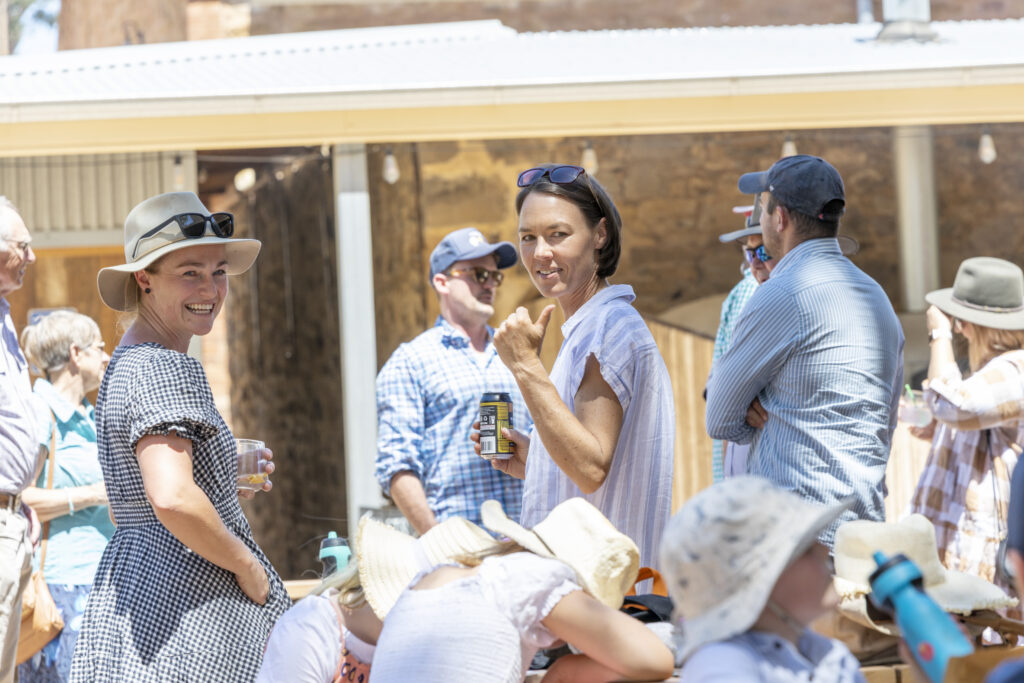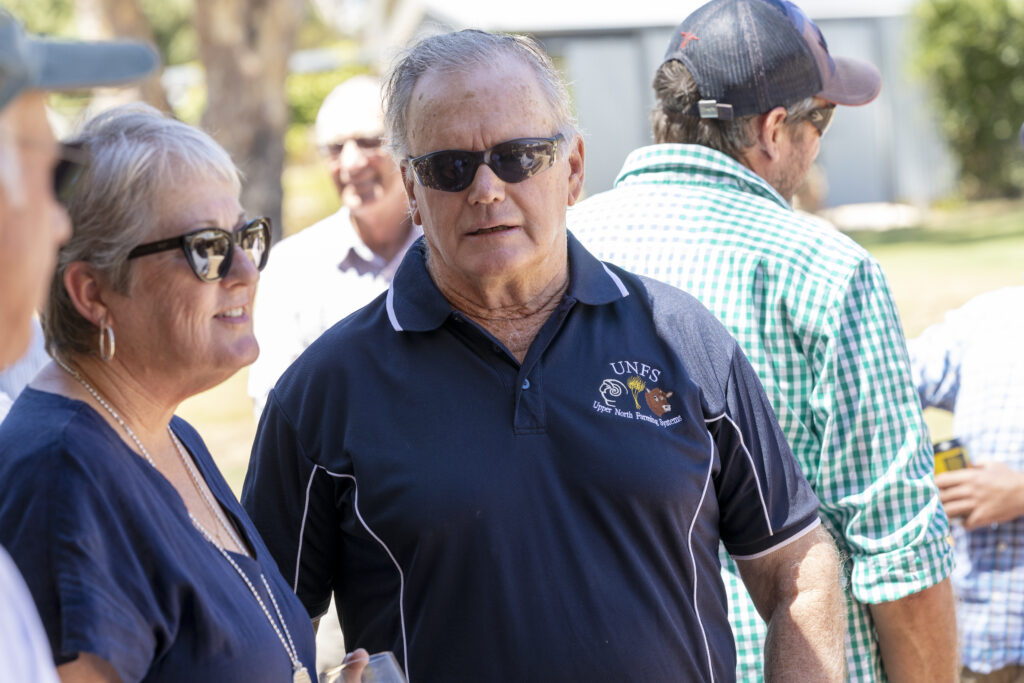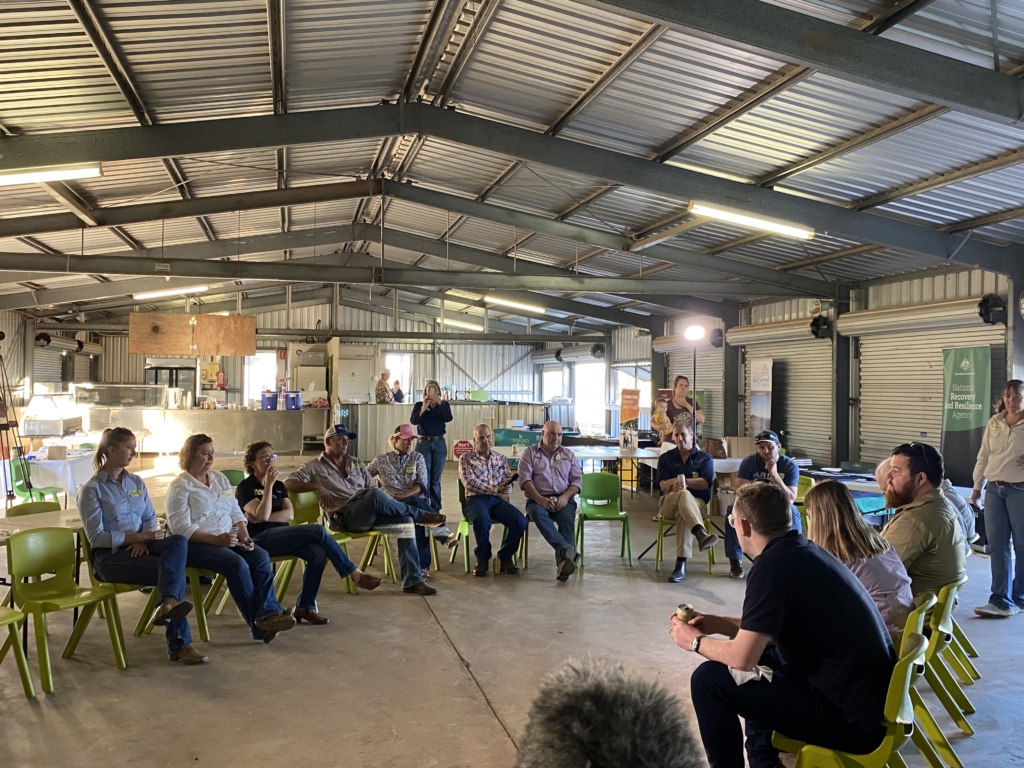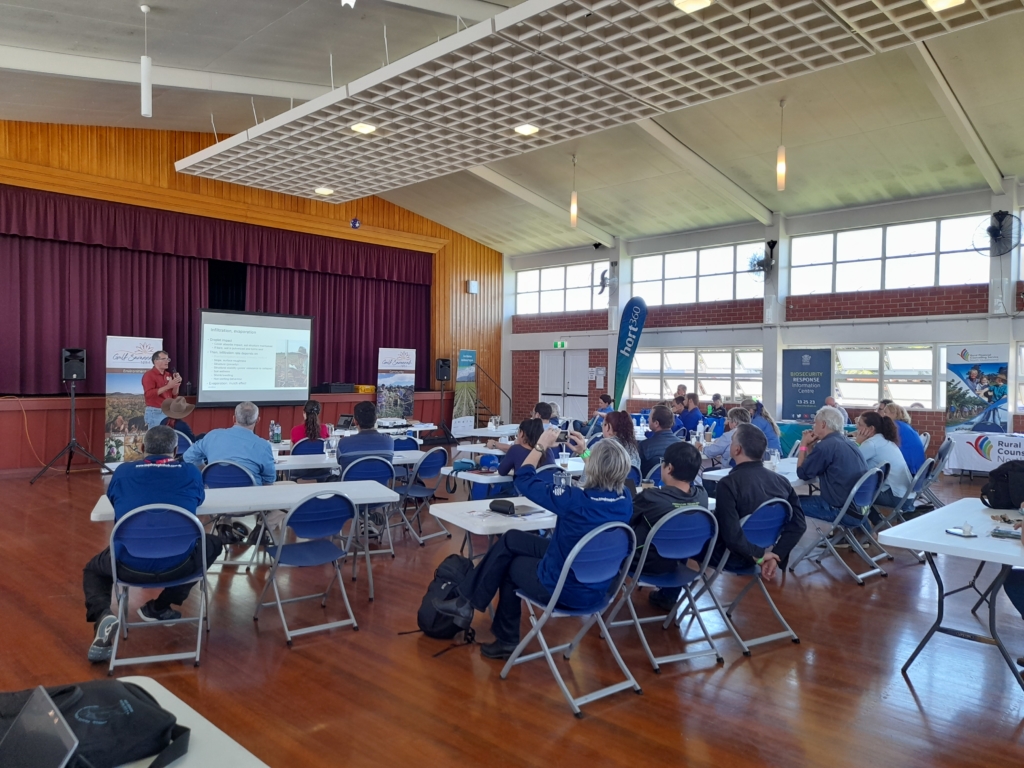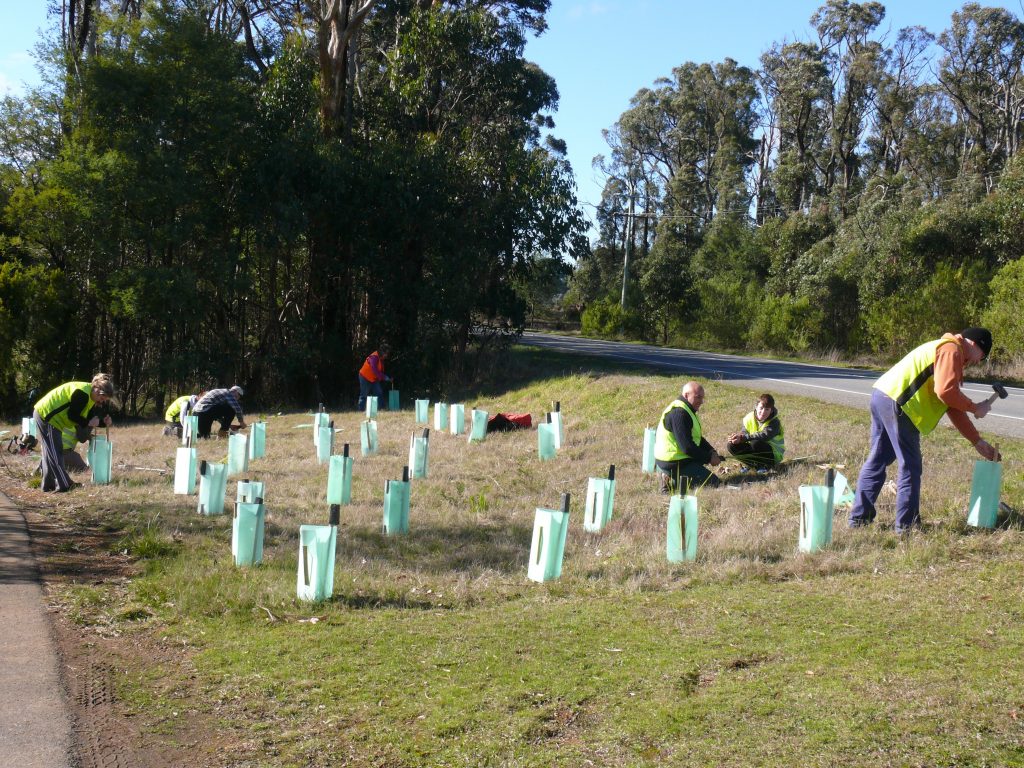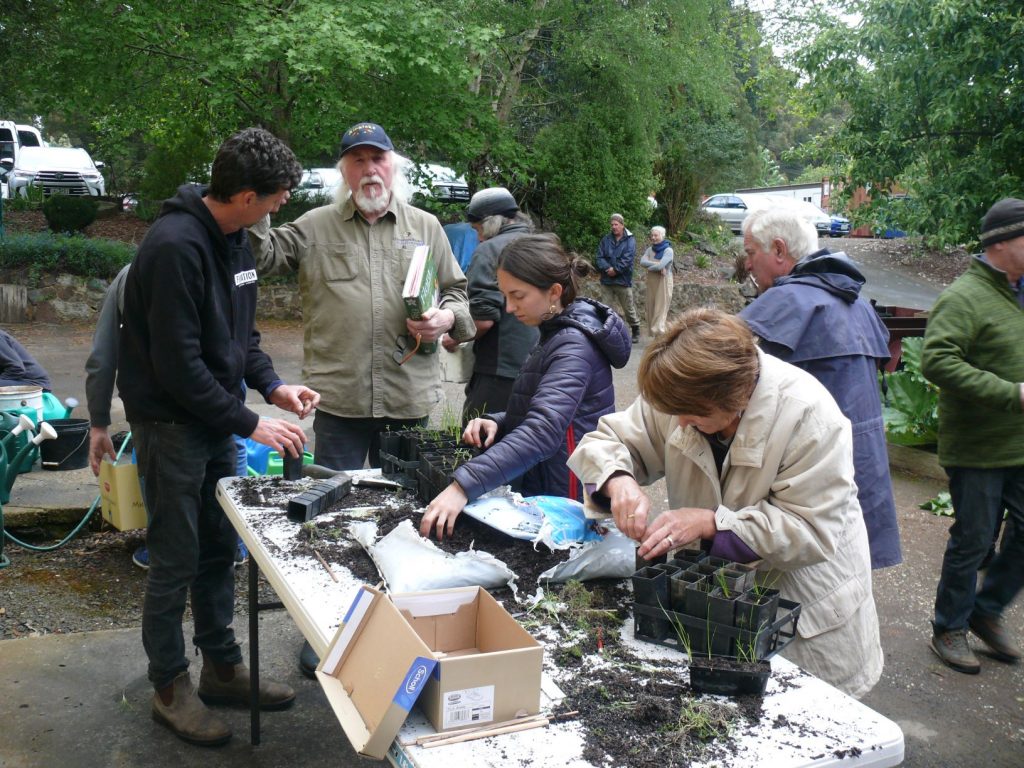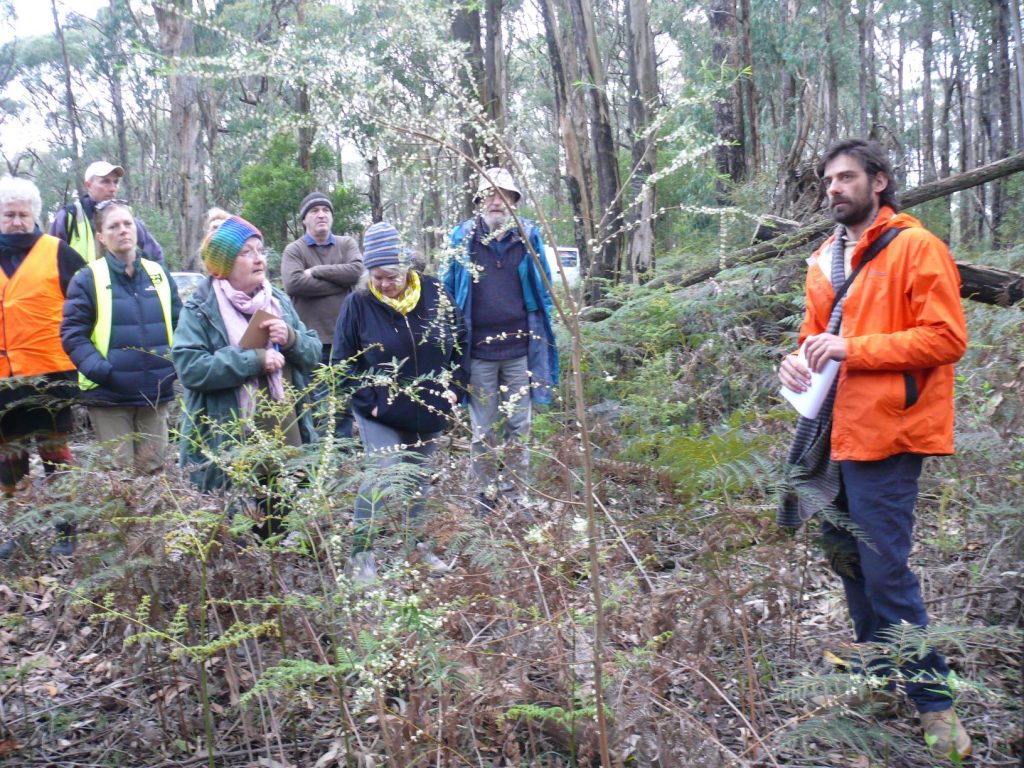Foundation for Rural & Regional Renewal (FRRR)
Upper North Farming Systems’ (UNSF’s) mission is to facilitate capacity building and empowerment of the agricultural community across the upper north region of South Australia. The group focuses on adapting and connecting farmers so they can learn from each other and from their shared experiences, and not farm in isolation. They do this by bringing farmers together in what they call Hubs. It’s a large and diverse geographical area, encompassing Booleroo Centre, Crystal Brook, Hallet, Jamestown, Laura, Peterborough, Nelshaby, Orroroo, Quorn and Wilmington. It’s a harsh climate, and when times are tough, they are very tough. The region has experienced significant declines in population and services over the past 30 years and the social fabric of communities in many areas has become frayed.
With the majority of communities in the region still reliant on agriculture, the social toll of the latest drought – the longest dry on record in 2020/21 – was evident, with symptoms of volunteer burn-out, self-isolation and mental health related issues.
Farmers know technology is essential, and farming systems have evolved significantly since the previous major drought, with stubble retention, improved efficiency of water use and a better understanding of livestock nutrition.
These communities are adaptable, open to innovation and aided through programs that promote not only professional connection, but also social and community connections, especially as these areas are typically not well-serviced by government research bodies and private consultants.
There are currently 11 Hubs under UNFS – eight geographical Hubs: Booleroo / Appila, Morchard / Orroroo / Pekina / Black Rock, Melrose, Gladstone / Laura, Jamestown, Nelshaby, Quorn and Wilmington and three non-geographic Hubs: Ladies on the Land, New Farmers and the Ag Tech Hub. The establishment of the Hubs in 2019 recognised the need to retain networks within the group and foster the tackling of issues on a smaller scale, as well as the importance of coming together on a social level.
A $20,000 Networks to Build Drought Resilience grant enabled UNFS to deliver the ‘Tools, Tech and Transformation’ workshop for farmers and agribusinesses. The key event was followed by a series of nine Hub events to provide the opportunity for networking, info-sharing, and learning about new farming systems and techniques to improve drought resilience. A ‘farmer-to-farmer’ learning model was recognised as a valuable and efficient mechanism to improve the productivity, profitability and sustainability of the agricultural industry in low rainfall zones.
The project reached 205 participants across 10 events that spanned six sector networks (Farm Business, Research Institute, NFP’s / Community Organisations, Consultants, Off Farm Business, Government Agency). Targeting farmers and agri-business directly, attendees learnt about tools aimed at improving efficiencies, sustainability and outcomes of operations like automatic feeding, as well as technology evolutions and business systems like satellite imagery on the farm scale, and succession and transition planning. Importantly, the solutions offered were all commercially available to be adopted on-farm, and farmers were able to speak directly with professionals in the fields, with discussions encouraged. They left with upto-date knowledge to help them build more resilient farming systems.
The Hub events ensured accessibility for farmers who couldn’t afford too much time away from their land. They were able to talk with neighbours and researchers about the outcomes of the 2021 season and what they might be able to do better next time. Questions like when and how to de-stock, how to ensure you’re looking after genetics and bloodlines, and considerations around agisting, planting times, and upgrading tech vs repairing machinery were raised. Each Hub session included a training session in a tool, tech or system (identified from the key event by their elected Hub Representative), as well as a planning session identifying how to implement the new skills and knowledge on-farm, and where they require additional support.
Through the project, participants built knowledge and understanding of the risks posed by drought and climate change and learnt new concepts on a range of topics that can be adapted for drought and climate preparedness.
Communities had the opportunity to connect, train, converse (something many would not normally do in their usual day-to-day business) and lean on systems and each other so they are more prepared for future challenges
Additional $150,000 per year going into canola-growing areas to support sustainability initiatives
FRRR has welcomed a three-year commitment from canola seed business, Nuseed, to support its flagship small grants program, Strengthening Rural Communities.
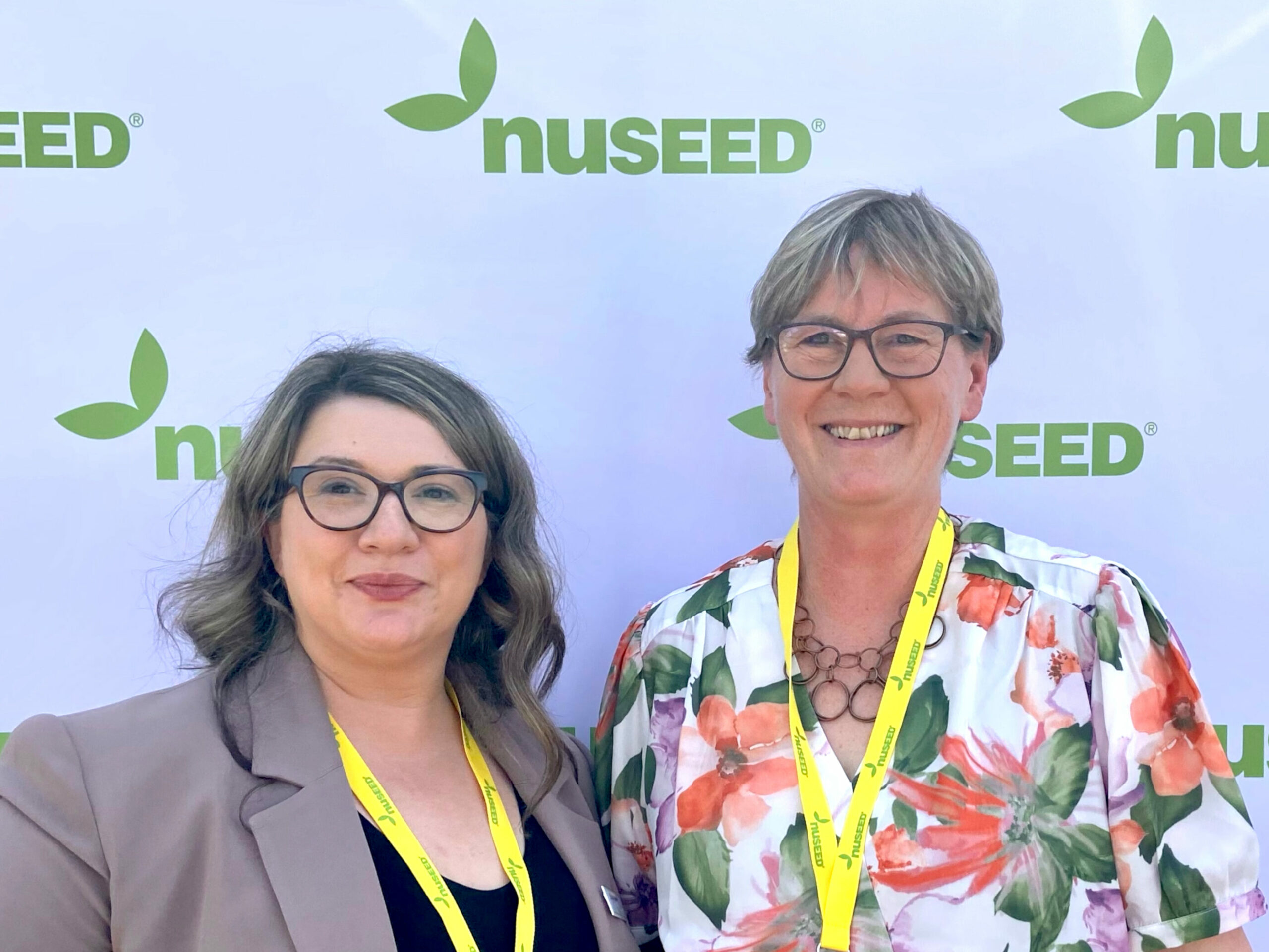
Announced at an event in Horsham on Wednesday 11 October, Nuseed Australia GM, Rachel Palumbo, said that with deep roots in rural communities, they wanted to give back to causes and organisations that are important to the farmers who invest in their seed, particularly around sustainability initiatives.
Ms Palumbo said, “Our team works hard to develop high-performing canola varieties for Australian farmers, and we know that we are successful because of the support we get in the local communities in which we operate. By partnering with FRRR we can support canola-growing communities in a tangible and significant way. The majority of our Nuseed team are also based in communities just like these, and see the benefits that community-focused projects can bring.”
“Nuseed is delighted to be adding our name to the list of organisations that are partnering with FRRR to ensure that funds get to the projects that really need support. Our funding will be directed at projects in canola-growing areas across the country that focus on sustainability related initiatives, in line with our strategic intent to provide plant-based solutions to some of food and fuel challenges we’re facing.”
Jill Karena, FRRR’s Place Programs Portfolio Lead, said the $150,000 annual donation will mean that many more community groups can invest in projects that they know will make a difference to the liveability and vitality of their communities.
“We are seeing more and more requests from community groups to help them respond to their changing needs, so it’s wonderful to be able to have dedicated funding available in canola-growing areas to be able to support these great projects.
“In some communities, that might look like installing air-conditioning in community owned buildings to reduce energy costs, providing sustainability focused education, undertaking tree planting, or waterway restoration initiatives. For other communities, it could be that the priority is to have a backup generator, solar panels or water tanks to ensure community gardens can be maintained.
“That’s the value of small grants programs like Strengthening Rural Communities. They are flexible and allow communities to get the funding to support the projects they prioritise, so we are really grateful for Nuseed’s support of this program. Our partnership will also mean that community groups get access to advice and support that builds their confidence and enables them to lodge a great application. We look forward to awarding many more grants thanks to their contribution,” Ms Karena said.
The Nuseed funding will be included in the next round of SRC, which is open now and will be announced by late February 2024. Community groups can already apply for SRC support, as this program is always open, with quarterly assessments. The program offers grants up to $10,000 through the Small and Vital stream for projects that strengthen community connections and meet local priorities.
Karridale, in the Blackwood region of southwest Western Australia, is home to a rich agricultural community. Established in 1991, the Lower Blackwood Land Conservation District Committee (LBLCDC) draws its membership from local landholders who have an interest in sustainable agricultural and land management practices that will protect and conserve their special environment.
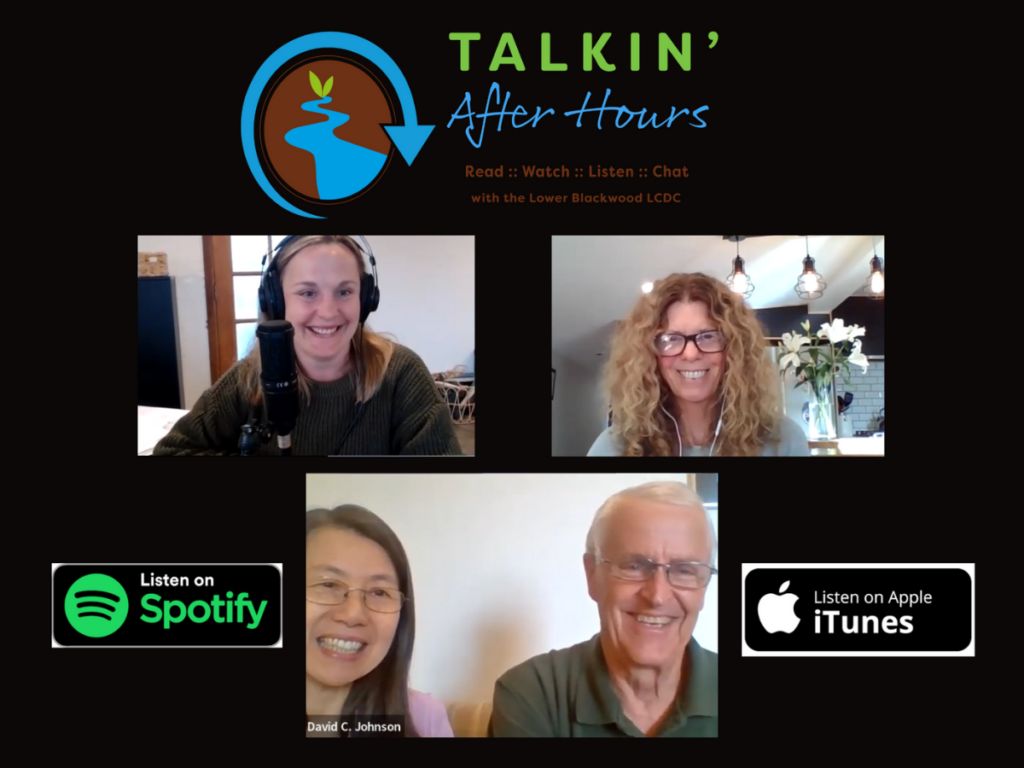
There is growing interest and awareness among local farmers of regenerative agriculture principles as a way to sustainably manage their land and productivity and strengthen their drought resilience. However, the LBLCDC identified a need for greater understanding of these principles, as well as how to implement them.
They noted a lack of access to resources and expertise to support farmers in creating resilient and responsive landscapes. They also saw the need for more peer-to-peer support and believed that conversations could combat isolation and foster a sense of community among local farmers.
In 2022, the LBLCDC decided to develop an online community forum and information hub that could bring the community together to connect and learn. Supported by the Australian Government’s Future Drought Fund, FRRR provided $49,850 through the Networks to Build Drought Resilience program to assist the LBLCDC with the design and delivery of their digital platform.
Driven by a content manager, the establishment of their online community (known as Talkin’ After Hours) allowed for the development of significant new drought resilience content. Although hampered by short timelines, the platform produced and delivered six webinars and five podcasts, with a further podcast, six written pieces and six short videos also developed and ready for release over the coming months. Each piece of content focused on one farm landscape management component that assists land managers to prepare for drought.
Feedback from platform users has been incredibly positive, with one user noting that they got more useful information from one 90-minute Talkin’ After Hours webinar “than in a whole year’s worth of ag school”.
“The easy access and on-demand format of the content allows landholders to access learning opportunities and information at a time and place that is convenient for them. It also offers the ability to share ideas, discuss and compare notes on issues, actions and solutions with other community members in a safe and convenient space, and promotes a more adaptable and resourceful community.”
The LBLCDC has been excited by the level of engagement with the platform, based on webinar registrations and content download figures. Across the six webinars delivered, there were 525 registrations and 11,175 YouTube views. In addition to this, there were 1,482 downloads of the podcasts. There was an even split of male and female participants involved, with a broad range of community members engaging with the project. While 70% of participants were between 45-64 years of age, it’s anticipated that given the online delivery format of the project, engagement will continue to grow, particularly with younger community members as they access podcasts and webinars recordings.
This new network is expected to expand as new community members become aware of the project. Going forward, they intend to continue expanding the platform to reach more community members as they release their developed content, and also intend to engage with their local Indigenous group, the Undalup Association Inc, for their input and ideas on content.
Talkin’ After Hours has increased the social connection of Lower Blackwood farmers and landholders. The interactive and engaging platform has helped build their resilience to future drought and fostered community and connection by developing a cohesive, relevant and applicable resource base for individual and community learning.
“The ability to be able to share ideas, discuss and compare notes on issues, actions and solutions with other community members in a safe and convenient space has and will promote a more adaptable and resourceful community.”
Upper North Farming Systems’ (UNSF’s) mission is to facilitate capacity building and empowerment of the agricultural community across the upper north region of South Australia. The group focuses on adapting and connecting farmers so they can learn from each other and from their shared experiences, and not farm in isolation. They do this by bringing farmers together in what they call Hubs. It’s a large and diverse geographical area, encompassing Booleroo Centre, Crystal Brook, Hallet, Jamestown, Laura, Peterborough, Nelshaby, Orroroo, Quorn and Wilmington. It’s a harsh climate, and when times are tough, they are very tough. The region has experienced significant declines in population and services over the past 30 years and the social fabric of communities in many areas has become frayed.
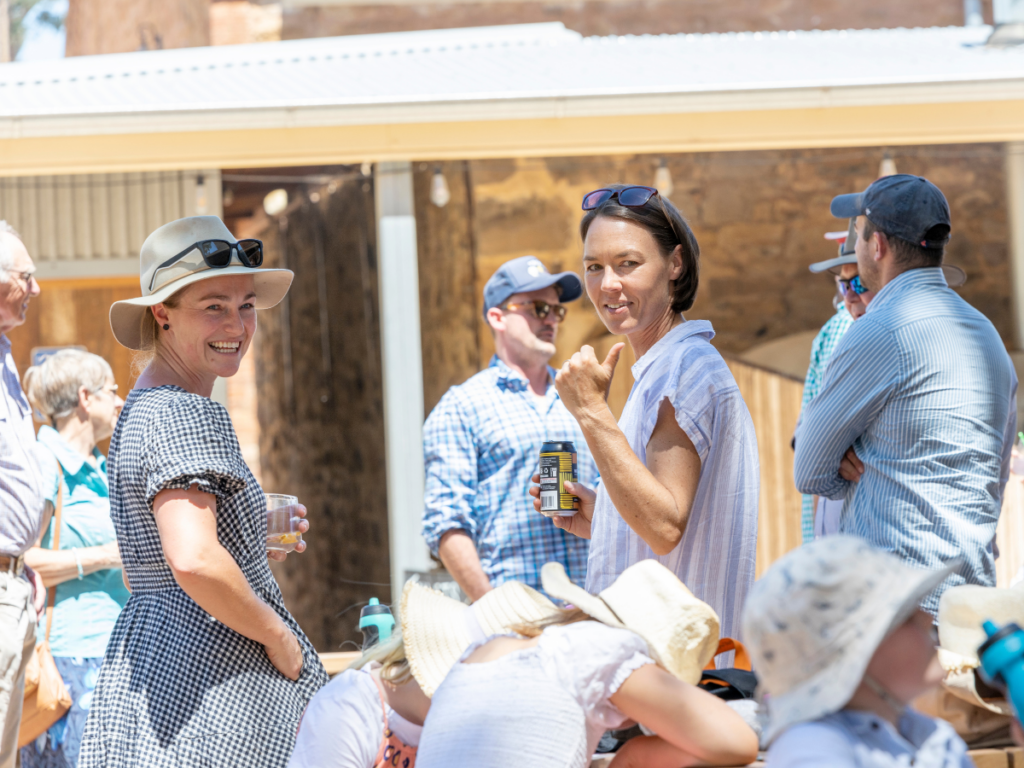
With the majority of communities in the region still reliant on agriculture, the social toll of the latest drought – the longest dry on record in 2020/21 – was evident, with symptoms of volunteer burn-out, self-isolation and mental health related issues.
Farmers know technology is essential, and farming systems have evolved significantly since the previous major drought, with stubble retention, improved efficiency of water use and a better understanding of livestock nutrition.
These communities are adaptable, open to innovation and aided through programs that promote not only professional connection, but also social and community connections, especially as these areas are typically not well-serviced by government research bodies and private consultants.
There are currently 11 Hubs under UNFS – eight geographical Hubs: Booleroo / Appila, Morchard / Orroroo / Pekina / Black Rock, Melrose, Gladstone / Laura, Jamestown, Nelshaby, Quorn and Wilmington and three non-geographic Hubs: Ladies on the Land, New Farmers and the Ag Tech Hub. The establishment of the Hubs in 2019 recognised the need to retain networks within the group and foster the tackling of issues on a smaller scale, as well as the importance of coming together on a social level.
A $20,000 Networks to Build Drought Resilience grant enabled UNFS to deliver the ‘Tools, Tech and Transformation’ workshop for farmers and agribusinesses. The key event was followed by a series of nine Hub events to provide the opportunity for networking, info-sharing, and learning about new farming systems and techniques to improve drought resilience. A ‘farmer-to-farmer’ learning model was recognised as a valuable and efficient mechanism to improve the productivity, profitability and sustainability of the agricultural industry in low rainfall zones.
“Through the Tools, Technology and Transformation event series, farmers and landholders have been provided with an abundance of information that can be adapted and changed on farm. Therefore, these tools that have been taken from the events can help farmers change their way of thinking and help their preparedness for drought or any other climate challenges they may face.”
The project reached 205 participants across 10 events that spanned six sector networks (Farm Business, Research Institute, NFP’s / Community Organisations, Consultants, Off Farm Business, Government Agency). Targeting farmers and agri-business directly, attendees learnt about tools aimed at improving efficiencies, sustainability and outcomes of operations like automatic feeding, as well as technology evolutions and business systems like satellite imagery on the farm scale, and succession and transition planning. Importantly, the solutions offered were all commercially available to be adopted on-farm, and farmers were able to speak directly with professionals in the fields, with discussions encouraged. They left with up-to-date knowledge to help them build more resilient farming systems.
The Hub events ensured accessibility for farmers who couldn’t afford too much time away from their land. They were able to talk with neighbours and researchers about the outcomes of the 2021 season and what they might be able to do better next time. Questions like when and how to de-stock, how to ensure you’re looking after genetics and bloodlines, and considerations around agisting, planting times, and upgrading tech vs repairing machinery were raised. Each Hub session included a training session in a tool, tech or system (identified from the key event by their elected Hub Representative), as well as a planning session identifying how to implement the new skills and knowledge on-farm, and where they require additional support.
Through the project, participants built knowledge and understanding of the risks posed by drought and climate change and learnt new concepts on a range of topics that can be adapted for drought and climate preparedness.
Communities had the opportunity to connect, train, converse (something many would not normally do in their usual day-to-day business) and lean on systems and each other so they are more prepared for future challenges.
For many remote, rural and regional communities, drought has been impacting families and businesses for years. Even though it is not always covered in mainstream news, those living in certain parts of Australia know all too well what lasting effects drought can have. For many working in the agriculture industry, the thought of current and future drought can be a stressful and frightening prospect with crops and livestock often hit the hardest. However, in each of these communities there is a fighting spirit, often driven by community-led groups and not-for-profits (NFPs) that work hard to support the wider community.
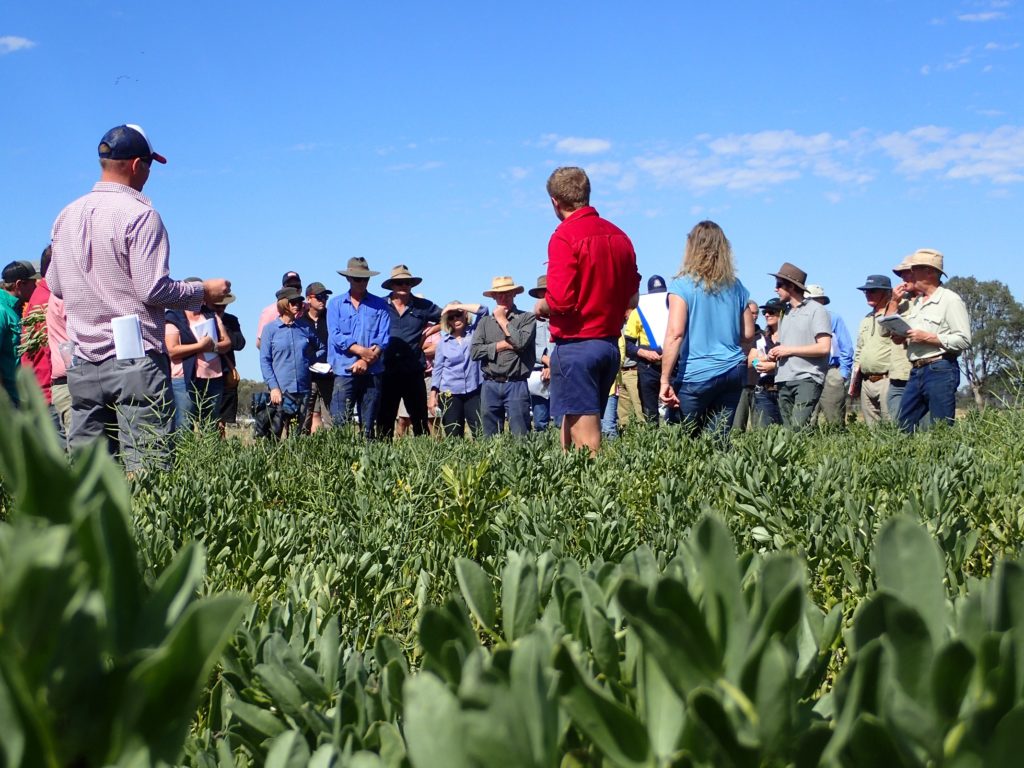
One of these groups is the Gippsland Agricultural Group who are driven by achieving results for farmers in the south east region of Gippsland in Victoria. The organisation is made up of Central and East Gippsland farmers and service providers that have joined forces as people with the shared desire to improve productivity, profitability and sustainability using research, collaboration, product trails and demonstrations to communities in the area.
One example of how Gippsland Agricultural Group planned to achieve this was by holding multiple field days. The Gippsland ‘Connect and Prepare’ field days were designed to build a sense of place and connection for farmers. Research conducted shows that farmers are most comfortable learning from other farmers in informal settings such walking around a paddock talking or learning while doing. For Gippsland Agricultural Group, providing resources like easy access to agricultural service providers, mental health and financial support, as well as strategies and tactics and practical learning, are all key to strengthening preparedness and resilience to future drought events.
Using a $42,920 grant through the Australian Government’s Future Drought Fund Networks to Build Drought Resilience program, Gippsland Agricultural Group held two farmer field days. Both days focused on farmer mental health and wellbeing by bringing health service providers to an environment where farmers are comfortable and feel they will be more likely to engage with services. Each day also featured key staff from other agricultural networks to encourage relationship development, project collaboration and sharing of ideas and resources. The first field day targeted producers, with a focus on networking and connecting with one another and relevant agriculture service providers.
While the field days are a great way to network and increase social interaction, the key purpose of the events is to build knowledge and skills with the estimated 200 producers, 15 agricultural agencies and service providers, and eight agricultural produce-led focus groups.
These events increased participant knowledge and understanding of the risks posed by drought by offering a program that shared information on climate variability. The events carried positive messaging about the resilience of regional producers focusing on practical, implementable drought preparedness solutions for everyday mum and dad farms.
In addition to funding the field days, the grant also enabled the installation of basic toilet facilities at a site frequently used for social and professional networking events. The community now has access to a space that supports educational, social and networking activities in a safe and hygienic space.
The far northern tip of Queensland – Gulf country – extends from wide plains through to tropical rainforest, but mostly comprises dry tropical savannah country. It s a very isolated region, yet is a productive beef grazing area, with some areas of horticulture. About 10,000 people live in 234,000 square kilometres – an area the equivalent size of Victoria. About 25% of people in the Gulf region identify as Indigenous.
Gulf Savannah Natural Resource Management (GSNRM) connects science, technology and landcare to improve productivity for farmers and graziers. Drought is a common challenge, with frequent extended dry seasons recorded over the last 30 years. GSNRM saw an opportunity to bring together producers for a series of forums across the region to strengthen networks and generally build the community’s capacity to better respond to the impacts of drought. They were supported by a Future Drought Fund Networks to Build Drought Resilience grant of $49,700.
To make the most of the time, organisers planned a farm visit during the Farming Forum, followed by information sessions and a lunch. With most graziers travelling long distances, their session was over two days, providing an opportunity for participants to not only gain new knowledge and skills but also reinforce and strengthen connections between these very isolated residents at social events. The face-to-face events provided a mix of guest speakers to impart knowledge and practical implementation skills or planning sessions to start putting the ideas into action. This included building
understanding of the risks posed by drought by exposing participants to discussions about the future of the region in the face of adverse climatic conditions and then discussing potential solutions. This approach empowered community members to make business resilience changes and fostered partnerships and collaboration between growers, graziers, agronomists, extension officers, industry, drought hub and government.
The organisers also recognised that, by far, the greatest risk posed by drought and the unpredictable nature of climate change is deteriorating mental health. The Unbreakable Success Matrix program, which involved online learning supported by live group discussions and mentoring, gave people the tools to mentally cope with those elements of their lives that cannot be controlled. This structure enabled geographically diverse individuals to come together over several weeks and develop an understanding of how others are coping or not coping, and receive the benefits of listening to the coaching and ideas from the facilitators.
Regular touch points enabled people to get to know each other better and therefore, as the program progressed, saw more vulnerable sharing and thus greater problem solving within the group. Assessment showed the ‘fear factor’ had significantly reduced for all respondents.
These events had the support of the Gulf Cattlemen’s Association and the FNQ Growers Association and were promoted widely through a range of different databases. This ensured a diverse cross-section of the community participated, beyond those that GSNRM normally engages with.
In total, 106 people participated in the three events, ranging from 15 to 74 years, although around 80% were aged 45-64. Around 15% were 15-24. Participants were often intergenerational and reflected a mix of new and established residents and was reflective of the general community.
The opportunity to contemplate drought and climate change in a supportive atmosphere and consider how prepared they are, or not, saw 42% of respondents say that the forums had ‘definitely prompted‘ them to change something in their business, while another 25% said they were ‘somewhat prompted’. Almost 100% of all respondents said that each speaker session was either ‘very valuable‘ or ’valuable’. For the GSNRM group itself, their network has increased dramatically and it has also seen significant increases in the interconnections between virtually all aspects of the
industry, especially across sectors.
Applications for Nutrien Ag Solutions Community Grants Program are now open, with eligible not-for-profit organisations invited to apply for a grant of up to $5,000 to support remote, rural or regional community projects. The Nutrien Ag Solutions Community Grants Program is run in partnership with FRRR.
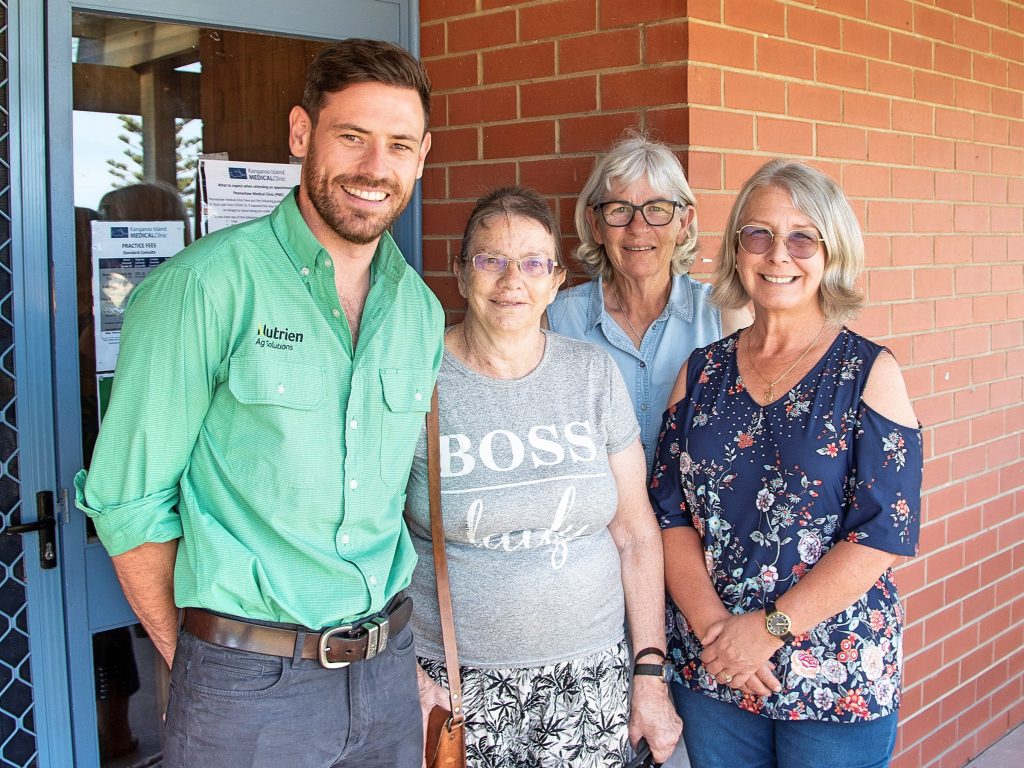
“Since the launch of the Community Grants program in 2021, Nutrien has supported 110 projects by awarding over $500,000 in grants to rural and regional communities across Australia,” said Mady Muirhead, Corporate Affairs Coordinator at Nutrien Ag Solutions.
“The success of agriculture and the well-being of regional Australia are inextricably linked. We’re proud to play a leading role in helping to build a safe and sustainable future for our farmers and their communities. We are going further by investing in meaningful projects and supporting local grassroot organisations.
“We have thousands of employees living and working in rural and regional Australia, ingrained in their local communities. They have a deep understanding of what makes a community thrive – and it’s all about the people.
“Last year we saw many parts of our country face environmental disasters on a significant scale, with many still facing recovery. This placed significant unanticipated stress on grassroots organisations and groups that work tirelessly to support their local communities. Nutrien Ag Solutions is so proud to provide a much-needed boost to the rural and regional communities we are a part of,” said Ms Muirhead.
The Community Grants Program has supported more than 100 local projects over the past two years, including the installation of an Indigenous artwork and Bush Tucker Garden at Childers, Queensland; contributing to a purpose-built beach ramp and wheelchairs at Swansea, Tasmania; child protection workshops at Dowerin, Western Australia and the installation of solar power panels at the Cambrai Sports Club in South Australia.
“We work in partnership with our communities to support them at a local level, in ways that best suit the individual needs of that community,” said Ms Muirhead.
“Rural communities continue to deal with so many challenges and the role of local not-for-profit groups is becoming ever more critical in filling gaps and helping create vibrant, sustainable communities. Many of these organisations have wonderful volunteers who do so much but projects to improve community facilities or resource new projects or operations also need funding,” said FRRR CEO, Natalie Egleton.
“Over the last two years local fundraising has been made increasingly difficult due to COVID and increasing economic pressures, meaning locals have less capacity to give. As a result, we’re seeing more and more demand for funding support.
“We are grateful for Nutrien’s ongoing partnership, as it enables grassroots groups to access grants that can go toward these projects. But it’s more than just money, as Nutrien’s support continues locally for groups that get funding, staying connected to the local branches as projects are implemented. So, we look forward to seeing what projects come forward this year,” Ms Egleton said.
Applications for the 2023 Nutrien Ag Solutions Community Grants Program are open now and close 10th August 2023, with successful applicants announced in October this year.
An online webinar will be held to support grant seekers from 12.30 – 1.30 (AEST) on Monday 24 July. Sign up for the webinar via the FRRR website or via this LINK.
For more information and to apply, visit: https://frrr.org.au/funding/place/nutrien/
53 priority projects receive grants through Nutrien Ag Solutions Community Grants programs
Fifty-three important community projects across the length and breadth of remote, rural and regional Australia will share $250,000 in funding, thanks to the Nutrien Ag Solutions Community Grants Program.
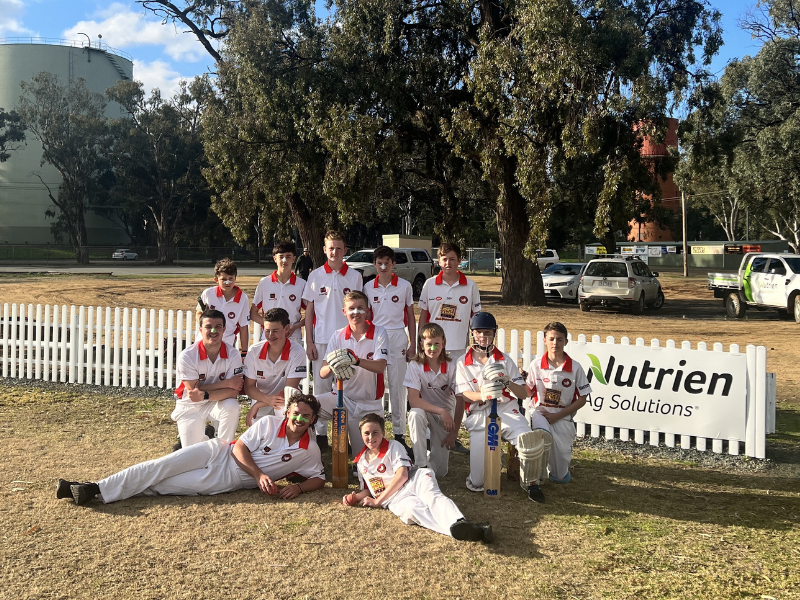
This is the second year of the Nutrien Ag Solutions Community Grants Program, which offers grants of up to $5,000 for projects that contribute to community wellbeing and vibrancy in remote, rural and regional communities.
Nutrien Ag Solutions Director of Corporate Affairs Carissa Buckland says they received more than 300 applications from communities right across the country.
“The strong number of applications we continue to receive for this program clearly indicates the need for this level of support for grassroots, not-for-profit organisations. So, we’re delighted to award grants to so many diverse projects that help these remote, rural and regional communities thrive,” says Ms Buckland.
“Part of the application process involves the local Nutrien store actively endorsing each project and application. Our stores are very integrated in their communities and our teams are passionate about providing meaningful support to positively impact the towns in which they live and work in, so this is a really important part of the process.
“This year we have approved grants to enhance and support the delivery of community events, including new marquees, grandstand seating and improved website functionality to support local show and expo event management. Critical funding will also go towards a diverse range of restorations, upgrades and new equipment for community facilities – from a toilet roof to rejuvenated courtyards to outdoor seating and kitchens, data projectors and lawn mowers. There’s even funding for sensory, Zen, bush tucker and community gardens, with each project designed to inclusively meet the needs of their communities. While they are not large value grants, these projects enable community activity to build connection and, importantly, support volunteers in all their efforts,” says Ms Buckland.
The Program is proudly run in partnership with the Foundation for Rural & Regional Renewal (FRRR).
FRRR CEO, Natalie Egleton says she appreciates organisations like Nutrien Ag Solutions partnering with FRRR to support the priorities of grassroots organisations that are the heartbeat of remote, rural and regional communities across Australia.
“The volume and nature of these applications is a strong sign that rural community life is returning to normal, although it also signifies just how challenging it is to raise these funds locally and the extent of the need that exists.
“It’s really pleasing for us that so much of the funding – nearly 30% – will go to communities with fewer than 500 people, which makes fundraising really hard. Most of the groups are also located in outer regional, remote or very remote areas of the country,” Ms Egleton explains.
The full list of recipients is available below. Some of the organisations and projects being supported include:
- Illabo Showground Land Manager, Illabo, NSW – Build capacity at the local show grounds with a WIFI upgrade, defibrillator installation and new broadcast system to enhance operations and experience for all users. $5,000
- Dagun Community Group Inc., Dagun, QLD – Enhance community connections with the restoration of the Dagun railway station labyrinth and Mary Valley agricultural history display, and through the community garden project. $4,900
- Limestone Coast Multicultural Network Incorporated, Naracoorte, SA – Build organisational capability with development of a strategic plan to support strengthening the Limestone Coast Multicultural Network. $4,952
- Hamilton District Agricultural Show Society, Hamilton, TAS – Build, grow and protect skills and networks with four workshops focusing on entrepreneurism, rural OH&S and resilience.$5,000
- Kyabram Blue Light, Kyabram, VIC – Increase social engagement opportunities and activities for youth in Kyabram to support their healthy growth and development. $5,000
- Lower Kalgan Community Association Incorporated, Albany, WA – Build resilience through a Fire Resilience Workshop – “Making your Property Fire Safe and Sustainable” exploring preparedness and land management aligned to changing climate impacts. $5,000
The third round of the Program is expected to open around June 2023. Community groups looking for funding in the interim should head to www.frrr.org.au/find-funding.
| Organisation | Project | Location | Grant | |||
|---|---|---|---|---|---|---|
| NEW SOUTH WALES | ||||||
| A Taste of Paradise Organic Farm Limited | Outdoor Kitchen Construction Enhance facilities where the community comes together and connects with the installation of an outdoor kitchen. | Broughton Village | $5,000 | |||
| Broken Hill Branch The Australian Stock Horse Society Incorporated Topar Christmas Tree | Topar Christmas Tree Improve social connectedness and build resilience by supporting the Topar Christmas Party for 60 adults and 40 children in the isolated area. | Little Topar | $4,975 | |||
| Challenge Community Services | Creation of a Zen Sensory Garden at Challenge's Patterson Street Disability Site Increase inclusion with the creation of a Zen Sensory Garden at Challenge's Patterson Street Disability site. | Tamworth | $4,550 | |||
| Delungra Memorial Bowling & Recreation Club Ltd | Rejuvenate, Protect and Provide Enhance organisational capacity with the provision of adequate storage for the Delungra Memorial Bowling Club. | Delungra | $5,000 | |||
| Dorrigo Community Nursery Inc | Water Resilience for the Dorrigo Community Nursery Improve the water efficiency of Dorrigo Community Garden with a new water tank enabling multiple volunteer projects. | Dorrigo | $5,000 | |||
| Gulgong Show Society Inc | Operation Seating Increase the organisations ability to support their community with the provision of seating under the sheltered area of the Gulgong Showgrounds. | Gulgong | $3,427 | |||
| Illabo Showground Land Manager | Facilities Enhancement Enhance community facilities safety by upgrading the broadcasting box, installing a defibrillator and enhancing Wifi facilities at the Illabo Showgrounds. | Illabo | $5,000 | |||
| Laggan Hall Land Manager | Laggan Hall Ride-on Mower Boost volunteer vitality with the provision of a ride on mower supporting the maintenance of the Laggan Hall grounds.. | Laggan | $5,000 | |||
| Lions Club of Young Incorporated | Shelving for Lions Shed Increase the capacity of the Lions Club of Young with the installation of appropriate shelving in their storage shed. | Young | $4,263 | |||
| Nyngan Ag Expo Incorporated | Nyngan Ag Expo Website, Interactive Site Map and Exhibitor Booking Upgrade Build organisational capacity by upgrading the website of Nygan Ag Expo with site booking functionality to reduce volunteer efforts and increase efficiency in operations. | Nyngan | $5,000 | |||
| two eight two eight inc | two eight two eight Lighting Upgrade Increase access to community facilities with the preservation of the historic Gulargambone hall. | Gulargambone | $5,000 | |||
| QUEENSLAND | ||||||
| Artworks Granite Belt INC | Stanthorpe QFS Restoration Project Preserve local history with the restoration of the Stanthorpe QFS building. | Stanthorpe | $5,000 | |||
| Dagun Community Group Inc | Mary Valley Agricultural History Display and Dagun Railway Station Labyrinth/Community Garden Project Enhance community connections with the restoration of a labyrinth and agricultural history display supported by social gardening days. | Dagun | $4,900 | |||
| Geham State School Parent & Citizens Association | New Data Projector for the Geham School/Community Activities Building Upgrade community facilities with a new data projector to support community engagement including movie nights, local events and school presentations. | Geham | $5,000 | |||
| Hungerford Sports Association Inc | Portable Shade Tents for Hungerford Community Increase the organisational capacity of Hungerford Sports Association with the provision of portable shade tents to support community events and activities. | Hungerford | $5,000 | |||
| Isis Community Pre-School & Kindergarten Association Inc | Indigenous Entrance Art and Bush Tucker Garden Increase cultural awareness at the Isis Community Kindergarten with the installation of an Indigenous artwork and Bush Tucker Garden. | Childers | $5,000 | |||
| Lions Club of Home Hill | Replacement Gazebos and Catering Bar-b-ques Increase organisational capacity with the provision of gazebos and catering equipment for the Lions Club of Home Hill. | Home Hill | $5,000 | |||
| Mundubbera Horse and Pony Club Inc | Shaded Grandstand for Mundubbera Community Enhance community facilities by supporting the installation of a shaded grandstand at the Mundubbera Showgrounds. | Mundubbera | $5,000 | |||
| Prospect Community Services Ltd | Charters Towers & the Region Wellness Luncheon Enhance general health and wellbeing with the provision of a series of community wellness activities across the Charters Towers region. | Charters Towers | $5,000 | |||
| Tambo Child Care Parents Group Inc | Tambo Childcare Centre Sensory Garden Project Enhance engagement in traditional educational settings with the development of a sensory garden at the Tambo Child Care facility. | Tambo | $5,000 | |||
| SOUTH AUSTRALIA | ||||||
| Booleroo Centre Community Development and Tourism Association Incorporated | Pass the Popcorn! Increase functionality of the local Booleroo Hall with the provision of a projector for community information sharing and entertainment. | Booleroo Centre | $5,000 | |||
| Bute History Group Inc | Blinds Installation Build organisational capacity for the Bute Historical Society with new window blinds to protect their artefacts from sun damage. | Bute | $4,660 | |||
| Cambrai Sports Club Inc | Installation of Solar Power to Enhance Regional Community Facility Reduce organisational overheads with the installation of Solar power at the Cambrai Sports Club. | Cambrai | $5,000 | |||
| Crystal Brook Kindergarten | A Path of Intergenerational Connection Increase community connections with "A path of intergenerational Connection" enabling kindergarten children and residents of Roseview Aged care to come together in a safe space. | Crystal Brook | $5,000 | |||
| Limestone Coast Multicultural Network Incorporated | Strategic Plan Development - Limestone Coast Multicultural Network Build organisational capacity with a strategic plan and vision to support the Limestone Coast Multicultural Network development. | Naracoorte | $4,952 | |||
| Lucindale Area School | Aquaponics Student Learning Facility Enhance the learning opportunities at Lucindale Area School with aquaponics equipment to enable community vegetable growing. | Lucindale | $4,633 | |||
| Marree Sports Club Inc | Sound System for Marree Sports Club Increase the organisational capacity of the Maree Sports Club with the installation of a sound system. | Marree | $5,000 | |||
| Paskeville Football Club Incorporated | Kitchen Upgrade Increase functionality of the Paskeville Community centre by relocating the hot water system. | Paskeville | $5,000 | |||
| TASMANIA | ||||||
| Community Garden Wynyard Inc | Greenhouse Construction Increase community activities and opportunities to connect with the expansion of the Wynyard Community Garden facility. | Wynyard | $5,000 | |||
| Hamilton District Agricultural Show Society | ‘Build, Grow, Protect’ Build community capability with four workshops focused on building resilience in individuals, growing their networks and protecting the rural community. | Hamilton | $5,000 | |||
| May Shaw Health Centre Inc | Beach Wheelchair Project Increase access with the provision of an all surface wheelchair enabling beach access for residents and visitors of May Shaw Health with poor mobility. | Swansea | $5,000 | |||
| North Eastern Agricultural & Pastoral Society Incorporated | Light Towers Increase organisational sustainability with the provision of light towers to mitigate regular hiring costs for the North Eastern Agricultural and Pastoral Society. | Scottsdale | $3,681 | |||
| Parkham Community Inc | Restoration of Parkham Community Centre floor Support the development of places where the community can connect, learn and gather by restoring the Parkham Church as the Parkham Community Centre. | Parkham | $4,901 | |||
| VICTORIA | ||||||
| A Better Life For Foster Kids Incorporated | Crisis Cases for Foster Care Support vulnerable foster children transitioning to care with essential item packs to provide comfort and reduce emotional stress. | Sale | $5,000 | |||
| Arapiles Community Theatre Inc Natimuk & District Soldiers Memorial Hall Committee | Natimuk Soldiers Memorial Hall Audio Visual System Boost community vitality with the installation of a data projector and sound system at the Natimuk Soldiers Memorial Hall for cultural events and increased hall usage. | Natimuk | $5,000 | |||
| Boort District Agricultural and Pastoral Society Incorporated | Professional Marquees for Boort Show! Enhance the organisational capacity of Boort District Agricultural and Pastoral Society Incorporated with the provision of marquees for use at community events and activities. | Boort | $5,000 | |||
| Cobden Technical School | Outdoor Meeting Space / Outdoor Classroom Improve the functionality of the outdoor classroom at Cobden Technical College with improved wife and seating, built by the local Men's Shed. | Cobden | $5,000 | |||
| Connewirricoo Community Centre Incorporated | Connewirricoo Community Centre Toilets Roofing Restore community assets with repairs to the roof and walls of the Connewirricoo Community Centre ablution block. | Connewirricoo | $5,000 | |||
| Gallery Central Incorporated | Gallery Lighting Improvement Improve community facilities in Nhill with new lighting at the local community art gallery to enhance visitor and local experience. | Nhill | $2,873 | |||
| Heathcote Community House Incorperated | Heathcote Sustainable Community House Build organisational capacity and capability with the implementation of sustainability initiatives including a roof top solar installation. | Heathcote | $5,000 | |||
| Kyabram Blue Light | Kyabram Blue Light Youth Engagement Activities 2022-2023 Increase youth connection with the provision of Blue Light activities and events for Kyabram and surrounding districts. | Kyabram | $5,000 | |||
| Pomonal Progress Association Incorporated | Mini Foody Festival - Towards a Resilient Pomonal Provide access to activities to increase community connection and resilience by hosting the Pomonal Mini Foody Festival. | Pomonal | $5,000 | |||
| Seymour Puckapunyal Community Radio Incorporated | Relocation of 103.9FM Community Radio Station Increase the broadcasting network of the Seymore Puckapunyal Community Radio by relocating the radio station to a more accessible site. | Seymour | $5,000 | |||
| The Trustee for Country Fire Authority & Brigades Donations Fund Sandsmere Rural Fire Brigade | Training Equipment and Wellbeing Session Funding Boost organisational capacity with the provision of training equipment and volunteer support for Kaniva Country Fire Authority. | Kaniva | $2,749 | |||
| Toora Community Action Team Incorporated | Toora: GunaiKurnai Country Preserve understanding of local origins and reflect on the impacts of a changing climate on the Toora community with the installation of a sculpture in the township. | Toora | $5,000 | |||
| WESTERN AUSTRALIA | ||||||
| 1922 & You Inc | 1922 & You Centenary Courtyard Project Rejuvenate community connections in Corrigin through revitalising the courtyard as a landing place for social and wellbeing activity. | Corrigin | $3,500 | |||
| Dowerin District High School Parents & Citizens Association Incorporated | Child Protection Education - Safe4Kids Workshops Enhance child safety practice through training of teacher, parents and children to build awareness and develop community skills and capability for addressing issues. | Dowerin | $5,000 | |||
| Geraldton Community Toy Library | The Geraldton Toy Library Building Rejuvenation Project Increase organisational capacity with the provision of adequate storage and fencing upgrades at the Geraldton Toy Library facility. | Geraldton | $5,000 | |||
| Gingin Playgroup Incorporated | Community Engagement with Playgroup Increase community resilience and connections with the provision of community events at activities at the Gingin Playgroup. | Gingin | $2,400 | |||
| Lower Kalgan Community Association Incorporated | Fire Resilience Workshop - Making your Property Fire Safe and Sustainable in the Great Southern Improve community resilience and preparedness with a workshop on property fire safety and climate change impact awareness. | Albany | $5,000 | |||
| Pemberton Sports Club Inc | Mower for the Pemberton Sports Club Increase the vitality of volunteers with the provision of a ride on mower for the Pemberton Sports club. | Pemberton | $5,000 | |||
| Shire of Morawa | Sup and Paint Morawa - Art Evenings Create opportunities for the community to connect with the arts with the delivery of Art lessons in Morawa. | Morawa | $5,000 | |||
| Tom Price Community Garden Inc | Revegetation of Bush Tucker Area Increase access to community activities with the revegetation of the Bush Tucker in the Community Garden. | Tom Price | $5,000 | |||
In the 12 years since the 2009 Bushfires, almost half of the residents of Kinglake are new to the area. So the work of Kinglake Landcare Group is important in helping to improve the new residents’ understanding of their natural environment and the importance of fire safety. As a subsidiary of Kinglake Ranges Neighbourhood House (KRNH), Kinglake Landcare Group provides support to the natural environment of Kinglake by undertaking community engagement activities and promoting sustainable agriculture.
With support from our Grants for Resilience & Wellness – Kinglake Ranges (GR&W Kinglake) program, Kinglake Landcare Group was able to make quite an impact on the community with their organised activities. The Group used their GR&W Kinglake grant to facilitate bushwalks and workshops to provide a practical way for residents to become familiar with the native flora, including how to care for it.
Geordie Scott-Walker, a botanist from Wildlife Experiences, guided a group of 22 enthusiastic participants on a walk from Captains Creek Road. Along the way Geordie would stop and identify local plants, explaining each ecosystem and the importance of the relationships between plants and the environment. After a quick lunch break, the walkers were then led to the nearby Wombelano Falls where the lesson continued. Social media posts allowed residents from surrounding areas, including Whittlesea and Strath Creek to participate in the activity as well.
The grant also made it possible for Kinglake Landcare Group to hold a propagation workshop with horticulturalist, Michael Cincotta, from the Latrobe Wildlife Sanctuary. Residents were shown how to grow indigenous flora through seeds and cuttings. The pots, soil and stakes were provided at the workshop. Attendees were able to take home their own small clipping of the Round-Leaf Pomaderris plant, which is endangered in the Kinglake area.
The success of these events prompted Kinglake Landcare Group to schedule more walks that have been postponed due to the coronavirus. With the enthusiasm and support from other nearby towns, the natural environment of Kinglake ranges will continue to improve and flourish.
By attending either of the activities these local communities were able to build on the knowledge and understanding of their natural environment. The hope is that each resident who participated in the walk or workshop will continue to share the information with others. The skills learnt at the bushwalk and the workshop have given individuals the power to help maintain the natural flora and take an active role in their community.
Applications now open for Future Drought Fund’s Networks to Build Drought Resilience program
Community organisations and networks can access a share of $4.5 million under the Networks to Build Drought Resilience program, with grants on offer to drive action on drought resilience. The program will be delivered by the Foundation for Rural & Regional Renewal (FRRR).
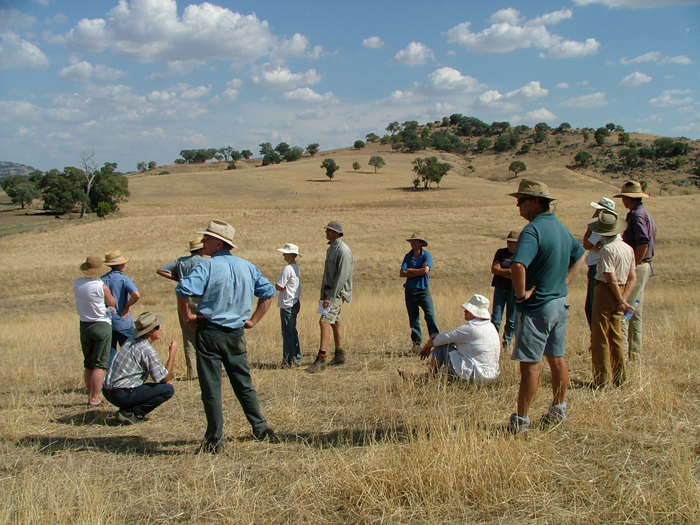
Through the Networks to Build Resilience program, the Australian Government’s investment of $3.375m, together with a $1.125m contribution from FRRR, will enable $4.5 million to be available for on-ground community capacity building projects, across two funding rounds.
The Networks to Build Drought Resilience program will support the community organisations, networks and infrastructure that help people and communities prepare for, and live through, times of drought. The program will fund events, activities, training and small-scale infrastructure that assist communities to build their capacity.
FRRR CEO Natalie Egleton said local community networks are the foundation of resilient communities.
“Through this program we’re helping to invest in the future of agriculture-dependent regions by enabling them to prepare now for periods of ongoing dryness,” Ms Egleton said.
“A key element of this program will be to build stronger networks, and to encourage greater sharing of learnings and more collaboration within and across networks.”
Applications are now open and close at 5pm AEST, 5 July 2021. Grant recipients will be announced October 2021. For more information or to apply visit FRRR’s website – www.frrr.org.au/networks.
Read the full announcement from The Hon David Littleproud, Minister for Agriculture, Drought and Emergency Management here – https://minister.awe.gov.au/littleproud/media-releases/fdf-networks-build-drought-resilience.
For more information on the Future Drought Fund, visit agriculture.gov.au/fdf.

